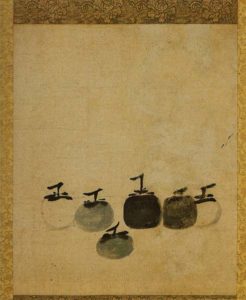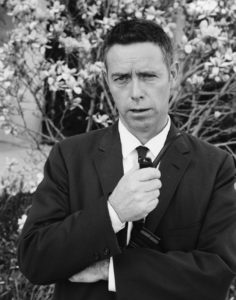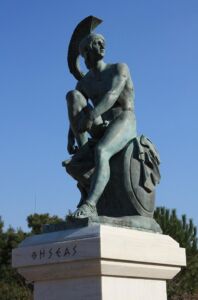Alan Watts was born on this day in 1915. A prolific scholar and dazzling stylist, Watts is best known as the chief popularizer of Asian philosophy for the Beat and Hippy movements, but he was also an original thinker in his own right and a quiet man of the Right. In commemoration of his birth, I wish to draw your attention to these works at Counter-Currents: (more…)
Tag: Eastern religion
-
Alan Watts was born on this day in 1915. A prolific scholar and dazzling stylist, Watts is best known as the chief popularizer of Asian philosophy for the Beat and Hippy movements, but he was also an original thinker in his own right and a quiet man of the Right. In commemoration of his birth, I wish to draw your attention to these works at Counter-Currents: (more…)
-
 1,489 words
1,489 words 1,489 words
1,489 wordsAuthor’s note: Cited passages are taken from the 1988 Stephen Mitchell translation, London, Macmillan.
Tao Te Ching, the “Book of the Way,” was ostensibly composed by the pseudonymous Lao Tzu, about whom next to nothing is known, sometime around the time of Confucius (551-479 BC). It’s things like this that add even more irresistible mystique to this slender volume, (more…)
-
4,862 words
Part 1 of 2 (Part 2 here)
“It is fortunate you are not a historian,” Jacobus commented. “You tend to let your own imagination run away with you.”[1]
“Unfortunately, the deep writer and poet Hermann Hesse was falsified and vulgarized by a world in decline. He needs to be re-read today by the same eyes that were once shaken by his mystery.”[2] (more…)
-
3,008 words
Translated by G. A. Malvicini
Elsewhere (in La Destra, in May 1972), we have discussed the necessary relationship of an authentic, non-makeshift Right with the concept of Tradition. In the sense discussed there, references to authors with a traditional orientation may be useful in dealing with certain complex problems. Here, however, we wish to provide an account of the ideas of René Guénon (1886-1951), who was regarded as the proponent of “integral Traditionalism.” (more…)
-
Inspired by the unique revaluation of Alan Watts on Counter-Currents, I want to share my reflections on two decades of studying the “wisdom of the East” which Watts helped to popularize in his lifetime.
Indeed, I remember when I read Psychotherapy East and West
, my first Watts book and also one of the first books I read about Eastern philosophy and religion. (more…)
-
5,251 words
As East and West is a review devoted not only to the study of Orientalism but also to the problem of the relations between East and West, it may not be out of place to deal here with the ideas on this subject which for some time past Jacques-Albert Cuttat has been championing, though in rather narrow circles.
Cuttat is a Swiss scholar who had devoted himself especially to the comparative study of the different spiritual and religious forms, and who in a first period had joined the French “traditionalist” group heading up by René Guénon. (more…)
-
Translated by M. P.
Arthur Koestler, the author of Le zéro et l’infini (in English, Darkness at Noon
), once played an important role in the Spanish Civil War as an agent of the Comintern. Through his writings, he set the tone of an anti-Francoist propaganda that has endured. Later, his deceptions made him an acute critic of Stalinism. (more…)
-
2,654 words
French translation here
Collin Cleary—the enigmatic sage of Sandpoint, Idaho—burst onto the intellectual scene almost ten years ago, with the publication of the first volume of the journal TYR: Myth—Culture—Tradition. Along with Joshua Buckley and Michael Moynihan, Cleary was one of the founding editors of TYR, having a hand in all aspects of the first volume and contributing three substantial articles and several reviews. (more…)






